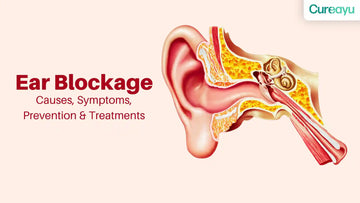Acidity, also known as acid reflux or heartburn, is a common digestive issue that affects millions of people worldwide. It occurs when excess acid is produced in the stomach, leading to a burning sensation in the chest, throat, or stomach. For some, it’s an occasional discomfort, but for others, it can become a chronic issue that significantly impacts their quality of life.
The rise in the occurrence of acidity can be attributed to modern lifestyle habits, poor dietary choices, and increased stress levels. While acidity may seem like a minor issue, if left untreated, it can lead to serious health complications such as gastroesophageal reflux disease (GERD), ulcers, and even damage to the esophagus. This blog will take a comprehensive look at what acidity is, its symptoms, causes, risk factors, prevention methods, and the best solutions for acidity relief.
Also Read: Gastric Problem Symptoms, Causes, Signs and How to Avoid Them: Ideal Destination
What Is Acidity?
Acidity is a condition where the stomach produces an excessive amount of hydrochloric acid, which is necessary for digestion but harmful in excessive quantities. The stomach is naturally designed to produce acid for breaking down food, but when the acid level goes beyond normal, it can cause irritation and inflammation in the stomach lining or esophagus.
The primary cause of acidity is the weakening of the lower esophageal sphincter (LES), a valve that connects the esophagus to the stomach. When the LES fails to close properly, stomach acid can rise into the esophagus, causing a burning sensation known as heartburn. Acidity can be triggered by various factors, including food choices, lifestyle habits, and even underlying medical conditions.
Symptoms of Acidity
1. HeartburnHeartburn is the most common symptom of acidity. It is characterized by a burning sensation in the chest that may extend to the throat and is usually worse after eating or when lying down. The pain can last for a few minutes to several hours, depending on the severity of the condition.
2. Regurgitation
Regurgitation occurs when stomach acid or food rises up into the throat or mouth, leaving a sour or bitter taste. It often happens after meals or when bending over or lying down. This symptom can be very uncomfortable and may lead to further complications like bad breath or sore throat.
3. Nausea and Vomiting
In severe cases of acidity, nausea and vomiting may occur. This happens when the stomach becomes so irritated by excess acid that it triggers the body’s natural reflex to expel its contents.
4. Bloating
Excessive acid production can lead to bloating and discomfort in the stomach. Bloating makes the stomach feel full and tight, which can contribute to a feeling of heaviness or indigestion after meals.
5. Sore Throat and Hoarseness
Continuous exposure of the throat to acid can cause irritation, leading to a sore throat and hoarseness. This is especially common in individuals who experience acid reflux regularly, as the acid can damage the lining of the throat over time.
Also Read: Effective Home Remedies For Stomach Pain: Natural Solutions For Quick Relief
Reasons for Acidity
1. Dietary HabitsCertain foods are known to trigger excess acid production in the stomach. These include spicy foods, fatty or fried items, citrus fruits, caffeine, and carbonated beverages. Eating large meals or lying down immediately after eating can also contribute to acidity.
2. Lifestyle Choices
Unhealthy habits such as smoking and excessive alcohol consumption can weaken the LES, making it easier for stomach acid to flow back into the esophagus. Additionally, stress and lack of physical activity can slow down digestion, contributing to increased acid production.
3. Obesity
Being overweight puts extra pressure on the stomach, causing the LES to weaken. This pressure can force stomach acid up into the esophagus, leading to heartburn and other symptoms of acidity.
4. Pregnancy
During pregnancy, hormonal changes can relax the LES, and the growing baby can put pressure on the stomach, leading to an increased risk of acidity. Many women experience heartburn and acid reflux during pregnancy, especially in the third trimester.
5. Hiatal Hernia
A hiatal hernia occurs when part of the stomach pushes through the diaphragm into the chest cavity. This condition weakens the LES and allows acid to rise into the esophagus, causing symptoms of acidity.
Also Read: Food for Digestion: Navigating Digestion with the Art of Food Selection for Gut Harmony
Risk Factors of Acidity
- Age: As you age, the digestive system slows down, increasing the likelihood of acid reflux.
- Smoking: Smoking weakens the LES, making acid reflux more likely.
- High-fat Diet: Consuming a diet high in fats can slow down digestion and increase the production of stomach acid.
- Stress: High levels of stress can lead to poor eating habits, slower digestion, and increased acid production.
- Lack of Exercise: Physical inactivity can contribute to poor digestion, which in turn can increase acidity.
Prevention for Acidity
- Eat Smaller Meals: Instead of three large meals, try eating smaller meals more frequently to avoid overloading the stomach.
- Avoid Trigger Foods: Identify and avoid foods that trigger your symptoms, such as spicy, fried, or acidic foods.
- Stay Upright After Eating: Avoid lying down or reclining immediately after eating to prevent acid from rising into the esophagus.
- Quit Smoking: Smoking weakens the LES and contributes to acid reflux, so quitting can help reduce symptoms.
- Reduce Stress: Practice stress-relieving activities like yoga, meditation, or deep breathing exercises to reduce acidity.
Also Read: Effective Home Remedies for Acidity: Natural Solutions for Quick Relief
Acidity Solutions
When it comes to finding the best solution for acidity, natural and medical options are available. The key is to find what works best for your body.
1. Herbal Remedies
For those looking for the best for acidity relief in a natural way, herbal remedies like ginger, licorice root, and fennel can be highly effective. These herbs help soothe the stomach lining, reduce acid production, and aid digestion. Consuming ginger tea or chewing fennel seeds after meals can alleviate acidity symptoms.
2. Over-the-Counter Antacids
Antacids neutralize the stomach acid, providing immediate relief from heartburn and other acidity symptoms. However, they are best used for occasional relief and not as a long-term solution.
3. Lifestyle Modifications
Adopting a healthier lifestyle can be the best long-term solution for acidity. This includes eating smaller meals, avoiding trigger foods, reducing alcohol consumption, and engaging in regular physical activity.
4. Prescription Medications
For severe or chronic cases of acidity, doctors may prescribe medications like proton pump inhibitors (PPIs) or H2 blockers, which reduce acid production in the stomach. These medications are best for acidity that is persistent and not relieved by lifestyle changes or over-the-counter solutions.
5. Surgical Options
In extreme cases where lifestyle changes and medications do not provide relief, surgery may be considered. Procedures like fundoplication strengthen the LES, preventing acid from rising into the esophagus.
Conclusion
Acidity is a common issue that, while uncomfortable, can be managed with the right approach. Understanding the symptoms, causes, and risk factors is the first step in addressing the problem. By adopting healthy lifestyle habits, avoiding trigger foods, and incorporating natural or medical treatments, you can effectively prevent and manage acidity. It’s important to listen to your body and take note of what triggers your symptoms. With the right prevention methods and solutions, you can reduce the occurrence of acid reflux and lead a more comfortable, symptom-free life. Remember, the best solution for acidity is one that suits your lifestyle and individual health needs.








